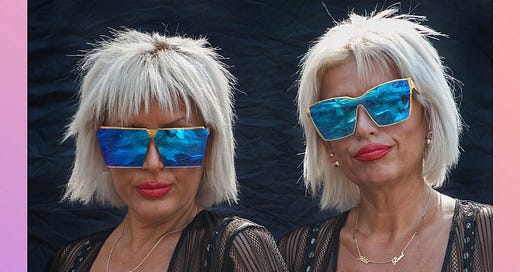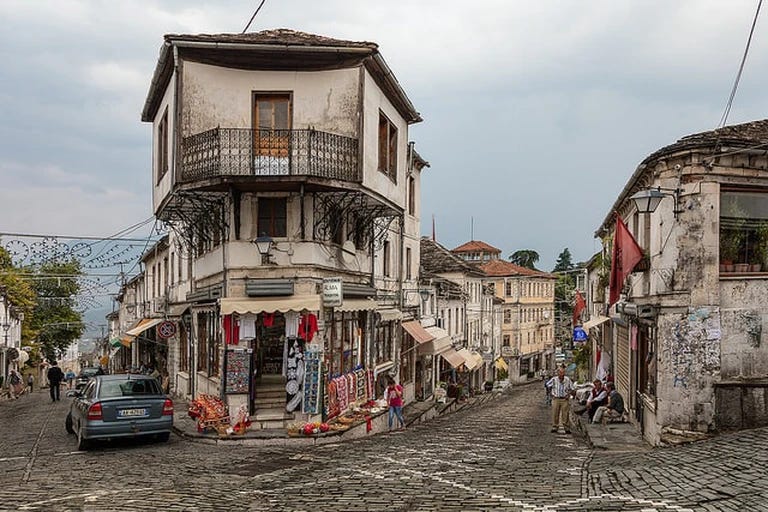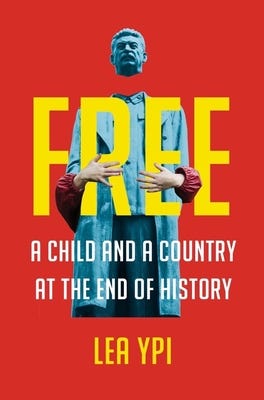Starting August 2022, this country bulletin series offers a curated cultural women-focused list for each country in the world. It will go through them in alphabetical order and take (approximately) eight years to complete. Subscribe to this newsletter to ensure you receive a country bulletin in your inbox every other Tuesday.
This email might be clipped in your Gmail inbox, so you may need to click “View Entire Message” link at the bottom of the email.
The Republic of Albania
Continent: Southeastern Europe (Balkan Peninsula)
Capital City: Tirana
Official language: Albanian - very interestingly, the Albanian language comprises an independent branch and is a language isolate within the Indo-European family of languages; it is not connected to any other known living language in Europe!
A super quick (5-minute) history of Albania.
Known for her ability to experiment with different musical genres, Elvana Gjata, known in her native Albania as Elvana, has achieved fifteen number one singles in the Albanian singles chart - making her one of the most popular artists in the Balkans. The 2012 winner of “Dancing With The Stars Albania”, Elvana is considered the "Diva of Albanian music".
Backpacking Bananas is an English solo female traveler who vlogged her backpacking trip around Albania. I really enjoyed watching all of her videos but particularly loved seeing her time in Gjirokaster - a picturesque Ottoman-era city carved from stone located in southern Albania.
Black and white footage of elegant Albanian dancing from years gone by and a dance medley of 22 dances from all regions of Albania (as well as regions in other countries with a strong Albanian presence). And, while you are at it, have a watch of this wonderful - and very fun - Albanian group dance. Time to dust off your dancing shoes and start practicing!
For decades Albania was eastern Europe's most closed and repressive state. During his 40-year reign, former communist leader Enver Hoxha banned religion, forbade travel and outlawed private property. In 1990, the communist regime fell and the country began a tumultuous transition from centralized planning to a market-based economy. Lea Ypi grew up through this transition and recounts the experience in her recent memoir Free: A Child and a Country at the End of History. This is an absolutely fascinating (and beautifully written) book that is filled with stories and insights about a country that was completely cut off from the rest of the world for many decades. More than “just” a memoir, Ypi (who is now a Professor in Political Theory at the London School of Economics (LSE)) weaves in philosophical questions about freedom and the relationship between the personal and the political. I can’t recommend this book enough - it is SO good! I also can’t get enough of Lea’s brain so I also recommend this discussion that she did at LSE and her interview on this episode of What’s Left of Philosophy.
There is no better (and more delicious) way to understand the history and complexity of a country than by learning about its food history. Earlier this year, the New York Museum of Food and Drink hosted a panel discussion about Albanian gastronomy. The four panelists share their stories and memories of Albanian cuisine during communism and post-communism and unpacked issues of identity and the role of Albanian women working to preserve Albanian food traditions. In the video, you will also see cooking demos of two traditional Albanian dishes. To continue with the cooking inspiration, check out My Albanian Food for a full collection of Albanian recipes.
Ani Gjika is an Albanian-born writer and literary translator, author of eight books and chapbooks of poetry. She’s a recipient of several awards and fellowships including the US National Endowment for the Arts, English PEN, the Robert Pinsky Global Fellowship and, most recently, Restless Books’ 2021 Prize for New Immigrant Writing. In this wonderful episode of Trafika Europe’s Women in Translation podcast she talks about Albanian to English literary translation, and the translator’s role in making legible and advocating for “minor” cultures and languages in the global literary arena.
A colorful ode to Albanian womanhood - multi-disciplinary artist Anna Ehrenstein pays tribute to the extreme, hyper-feminine aesthetics of her home country. For her ongoing project Tales of Lipstick and Virtue, she approached 90 women in the capital of Tirana and asked to take their portrait. The aim of the project is to examine the post-communist context of the country and to challenge the tired stereotypes that surround Albanian women specifically. This article is a great read to learn more about the thinking behind her project.
Speaking of womanhood, Albanian women’s wear designer Nensi Dojaka is on a mission to “repaint the image of the woman” with her lingerie-inspired dresses and cutout pieces. A favorite of celebrities including Emily Ratajkowski, Carey Mulligan, and Bella Hadid, Dojaka was the 2021 winner of the prestigious LVMH Prize. Her collections are sexy, sophisticated, and (according to Vogue) “a complete picture of female body-confidence”.

Albania is a global leader in terms of the percentage of women in government positions. In 2021, the country’s parliament voted to approve the new, female-dominated cabinet of Prime Minister Edi Rama, with 12 of the 17 jobs going to women. Throughout his long career, including during his tenures as culture minister, mayor of the Albanian capital Tirana, and as prime minister, a position he has held since 2013, Rama has always included women in top positions. And, he is also the one responsible for transforming Tirana into a city of color - watch his Ted talk “Take Back Your City with Paint”.
Thank you so much for reading this edition of the country series!
Please leave a comment of anything you have learnt from this newsletter and if you have any other Albanian recommendations to add to the conversation!
Talk to you soon!
xxx








